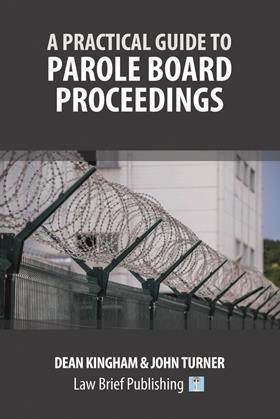A Practical Guide to Parole Board Proceedings
Dean Kingham and John Turner
£39.99, Law Brief Publishing
★★★✩✩
The Parole Board used to be a quiet, largely invisible, quasi-judicial body. It did its job out of the public eye, attracting little attention. Then the John Warboys case happened. The decision to release one of Britain’s most notorious sex offenders threw the spotlight on the board like never before, with a judicial review claim by two of his victims, the resignation of the chair – allegedly at the prompting of the secretary of state for justice – and extensive media interest. The fallout led to greater transparency and several changes to the board’s workings. It is about time a solid reference book dealing with the new procedure was produced.
Dean Kingham and John Turner are vastly experienced parole lawyers. At an earlier stage of our respective careers, Dean and I worked in different offices of the same firm, and more recently I have litigated cases against him, so I can speak to his extensive knowledge of the field. The book is clearly aimed at those new to the Parole Board, and those seeking a basic understanding of the proceedings rather than specialists. It nails that brief.

The book follows the process from the initial application to the final decision, outlining the key rules and case law. It is well laid out, clearly structured, and, crucially for a work of this kind, easy to follow and accessible.
There are some criticisms to be made. The text has numerous grammatical and typographical errors; numbers appear at random in a couple of paragraphs; and at one point a sentence finishes abruptly. These are things that the publisher should pick up at an early stage, and it makes the book look less professional.
Where I would criticise the authors is with regard to a missed opportunity to share their knowledge. Given the wealth of experience of both, it is disappointing that there were not more discussions of the law in practice; some of the complexities they have had to navigate; and some of the unusual cases they have experienced that illustrate how the law works.
As it stands, the book does exactly what is required: provide a short, handy guide to the Parole Board. I certainly do not criticise that. I would, however, have liked to have more of the authors’ practical experience on show.
James E Hurford is a solicitor at the Government Legal Department, London































No comments yet